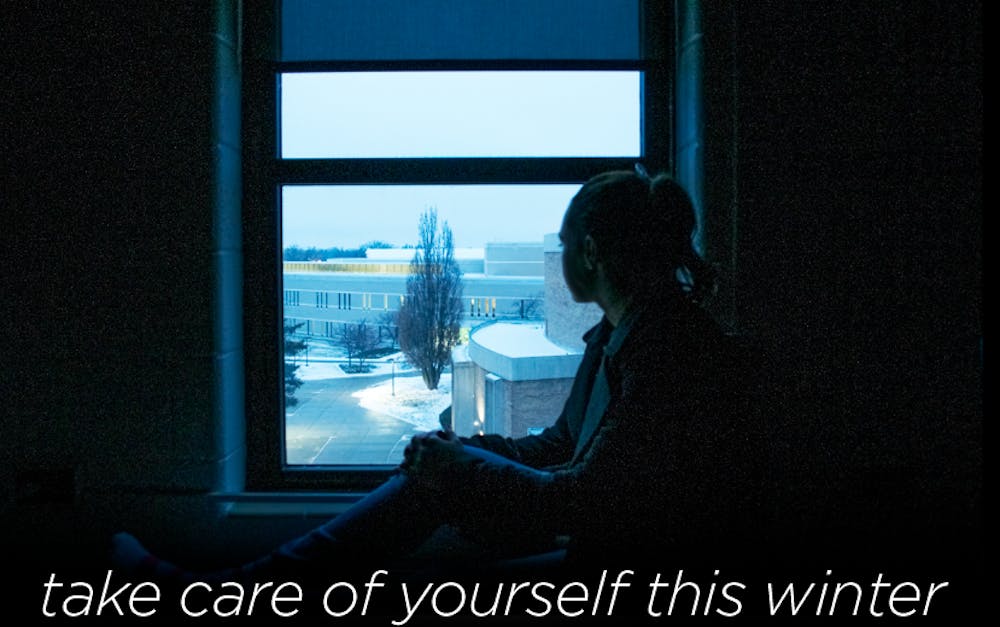EDITORIAL: Seasonal depression is in full-effect, take care of yourself
We’ve all felt it. It’s cold outside. We leave an afternoon class, it’s barely 6 p.m. It’s already dark out. Going outside feels sometimes dreadful in the winter. It’s cold, it’s colorless and depressing.
What you might be feeling is effects of seasonal affective disorder (SAD), a subtype of depression that occurs during winter when the days are shorter and there is less sunlight.
About 5 percent of people who live in Michigan experience SAD every year, according to Central Michigan University psychiatrist James Hillard. People who experience SAD are likely to have depressive symptoms such as insomnia, lack of appetite, lack of energy and general disinterest in what is happening around them.
“A lot of people get what we call subsyndromal seasonal mood changes," Hillard told Central Michigan Life. "The range of SAD can be from a very mild case to something that is very severe. Most of the severe cases of SAD, however, have been with people who have experienced depressive episodes in the past."
Experiencing SAD might affect your daily mood and motivation to go to class, enjoying times with friends and striving toward your goals. The fall semester gives students some warm weather and sunlight and continuous opportunities to be outside. There’s Welcome Weekend, football and tailgate season and many campus activities occurring outside until the fun of the holidays arrives. This is not the same case when it comes to winter.
If you’re experiencing this, there are ways to feel better.
While there’s less sunlight in the winter, we still get those overly sunny days. Make sure to take advantage of those. Go outside and go for a walk. Play in the snow with your friends. If it isn’t too cold, go for a run. Hillard recommends exercising regularly to help with the effects of SAD.
Another option is light therapy with a light box. According to mayoclinic.org, a light therapy box impersonates the light that you be getting from outside.
“Researchers believe this type of light causes a chemical change in the brain that lifts your mood and eases other symptoms of SAD,” the website states.
Take care of yourself this winter season, Chippewas and know there are ways to help if you’re experiencing any symptoms of SAD.
Those suffering from SAD or any depressive disorder, can contact the CMU Psychiatry Clinic at 989-774-6599 or the CMU Counseling Center at 989-774-3381 to set up an appointment.







